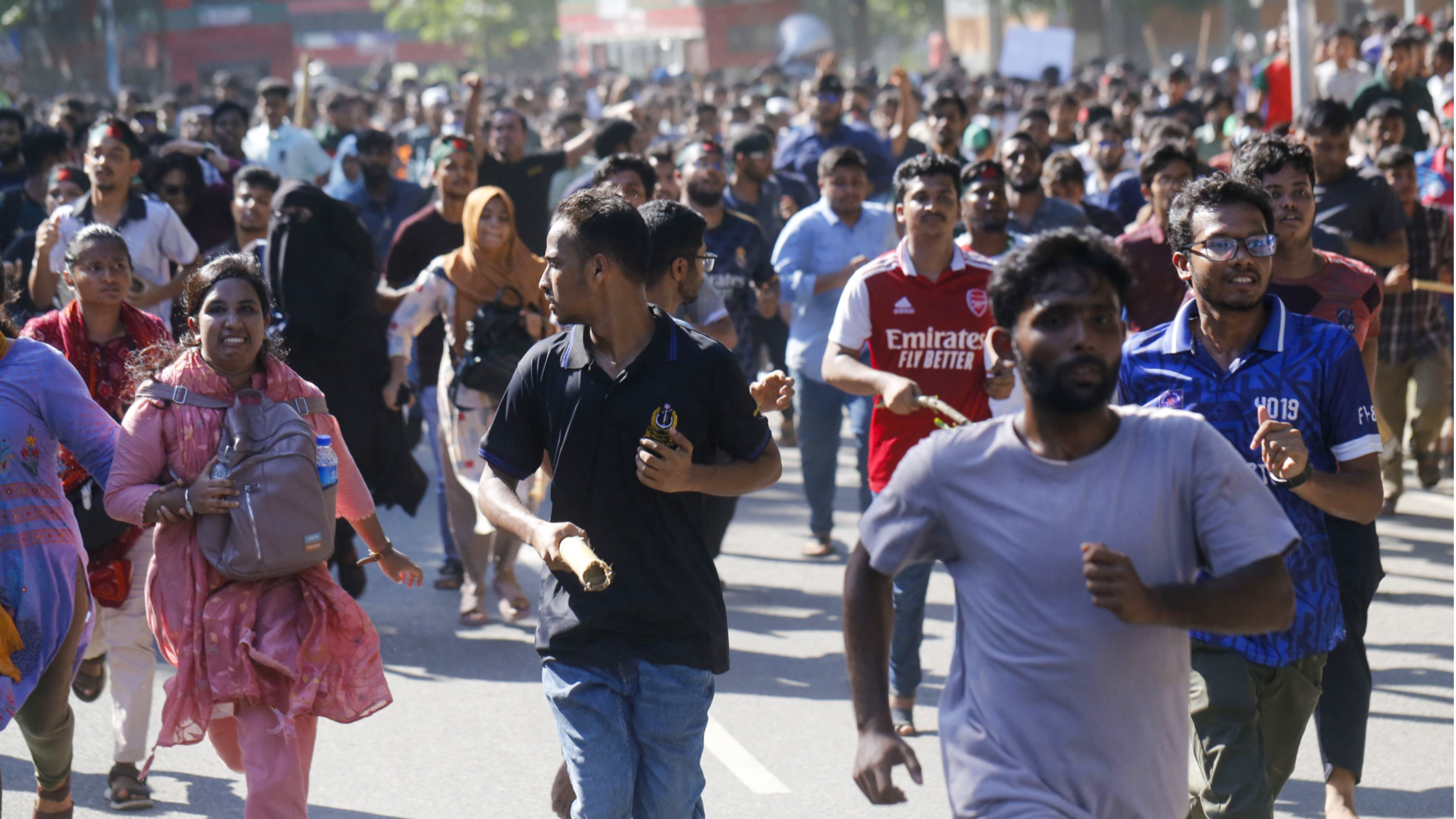
DHAKA — Thousands of riot police fanned out at university campuses across Bangladesh on Tuesday, a day after protests against a quota system for government jobs turned violent and more than 100 people were injured in the South Asian nation.
In the first significant demonstrations against Prime Minister Sheikh Hasina's government since she won a fourth straight term in January, protests have erupted against quotas for jobs, including a 30 percent reservation in jobs for descendants of freedom fighters from the 1971 War of Independence.
In Bangladesh, 56 percent of government jobs are reserved for various quotas. Women have a 10 percent reservation, 10 percent is for people from underdeveloped districts, 5 percent for indigenous communities and 1 percent for people with disabilities
Stagnant job growth in Bangladesh's private sector has made government jobs, which offer regular wage hikes and other privileges, more attractive, said Mohammad Abdur Razzaque, chairman of Research and Policy Integration for Development.
READ MORE: Report: Chinese enterprises in Bangladesh offer 550,000 jobs
In Bangladesh, 56 percent of government jobs are reserved for various quotas. Women have a 10 percent reservation, 10 percent is for people from underdeveloped districts, 5 percent for indigenous communities and 1 percent for people with disabilities.
Violence erupted on Monday when thousands of anti-quota protesters clashed with members of the student wing of Prime Minister Sheikh Hasina's Awami League party.
Protesters have planned more marches and rallies nationwide and demonstrations will continue until their demands are met, said Nahid Islam, the coordinator of the anti-quota protests.
Sporadic violence was reported on Tuesday, with students blocking railways and major highways. TV footage showed heavy presence of police, wearing protective vests and helmets and armed with wooden sticks, outside the Dhaka University campus.
The student wing of the main opposition, Bangladesh Nationalist Party, also called for marches on Wednesday to demonstrate against Monday's attack on protesting students.
Despite manufacturing production having grown by an average of 10 percent annually since 2011, employment in the sector has fallen between 2017 and 2023, Razzaque said, citing official statistics
Protests began earlier this month when the High Court ordered the government to reinstate the 30 percent job quota.
The Supreme Court suspended the order last week for a month but protests continued and they intensified after Hasina refused to meet the students' demands, citing ongoing court proceedings.
READ MORE: China, Bangladesh always cooperate toward a better future
Hasina labeled those opposing the quota as "razakar" - a term used for those who allegedly collaborated with the Pakistani army during the 1971 war - prompting more widespread protests.
Despite manufacturing production having grown by an average of 10 percent annually since 2011, employment in the sector has fallen between 2017 and 2023, Razzaque said, citing official statistics.
"Additionally, youth unemployment is high, with nearly 32 million young people not in education, employment, or training," Razzaque added.


